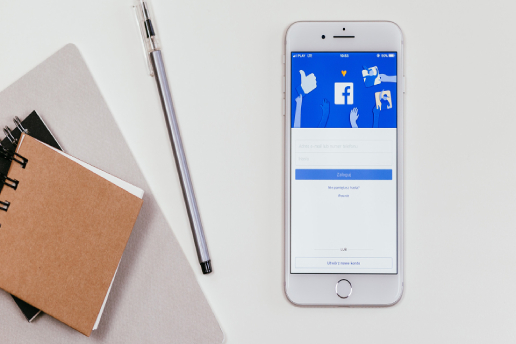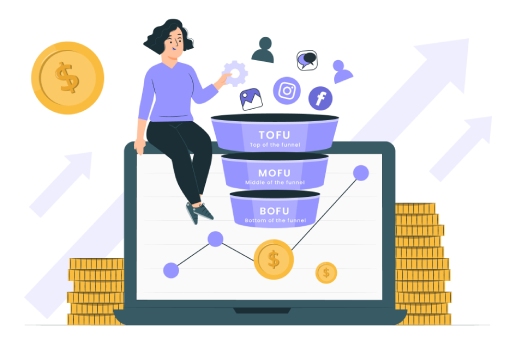Facebook Pixel has been the go-to piece of code people would rely on to assess the performance of Facebook campaigns and to build retargeting audiences. However, the strength of Facebook Pixel is decreasing due to the privacy features of iOS 14 and some death of cookies.
Facebook has rolled out the improved and new Facebook conversions API to remedy this. If you are an advertiser who wants to track your conversions correctly, this tool is useful for you always. But now it has become important for Facebook advertisers who want to safeguard their strategy in a world where privacy is given the foremost importance.
Definition of Facebook Conversions API
Facebook defines Facebook Conversions API as:
“Conversions API is a Facebook Business Tool that lets you share key web and offline events, or customer actions, directly from your server to Facebook’s.”
But that might get too technical for you to understand. Following is the meaning of each term in the above description of Facebook Capi.
API:
Application programming interface. It connects one application to another and helps them converse with one another. In this case, it’s the offline events, Facebook web, and your website. These are actions performed on your website such as filling out a form, viewing a page, etc.) or offline (like calling you) by individuals who have interactions with your Facebook Ads
Your server:
In this context, “your server” means the machine that holds your website and every data that is associated with it. Big businesses often have their personal servers, whereas small businesses generally pay for their website to be hosted on another’s server (like Bluehost or GoDaddy).
Facebook’s server:
There are thousands of servers owned by Facebook. On one of the servers, Ads Manager is hosted. In this context, “Facebook Server” means the machine that hosts Ads Manager data. Thus the Facebook Conversion API connects Facebook Ads Manager (hosted by Facebook’s server) to your website data (hosted on your server). With the use of this technology, you can see the behavior of Facebook users who interact with your ads.
Facebook Pixel vs. Facebook Conversions API
A piece of code that is on your website that eventually sends a cookie to Facebook’s server or Ads Manager whenever any individual who had interactions with your Facebook Ads performs any action on your website is known as Facebook Pixel. It is a conversion tracking method that is dependent on the browser as the cookies are stored in the browser of the user.
On the other hand, the Conversions API is a type of server-side conversion tracking. Therefore the data of the same user behavior is gathered but stored on your server and not in the browser. The server is connected to Facebook via API.
In the case of the conversions API, the website gathers the data, the data is then saved on the server, and then it is sent over to Facebook through API.
In the case of the pixel, the data is collected by Facebook using cookies, it gets saved on the browser of the user, and then the data is sent over to Facebook through Pixel.
The Events That Can Be Tracked By Facebook CAPI
All the standard events that Facebook Pixel can track can be tracked by CAPI, including:
- Purchase
- Add to cart
- Customize product
- Add information about payment
- Books and schedule appointment
- Submit Application
- Add to wishlist
- Donate
- Initiate checkout
- Subscribe
- Search using sight
- View Content
- Complete registration
- Contact (email, phone, chat, SMS)
- Lead
- Use an app or website to get location searches for your store
- Page view
- Start Trial
Reasons To Use Facebook CAPI
Now that you get the processes of Facebook CAPI, its advantages can be better understood.
- CAPI solves ad blockers and VPNs:
Initially, the Facebook Pixel gave us all the information required to build an influential audience for the advertisements. Then adblockers, VPNs, and other privacy software began to create some distortions in the data. Facebook Conversions API came into work in these spaces.
- iOS14-friendly tool:
With iOS 14, we have to deal with gaps as opposed to distortions in data. These gaps have a negative effect on Facebook ad targeting. This is due to the fact that iOS 14 puts a limit on what data can be collected by the advertisers via client-side (pixel) tracking, and the users have the option to use ATT to turn off tracking entirely.
User data is sent not from the user’s device but directly from the server to Facebook. Due to this, one does not need to depend on the browser data and cookies collected by Facebook Pixel.
- Significant lower-funnel activity is captured by Facebook CAPI:
With the Facebook CAPI, one can send further than simply website behavior to Facebook. The number of server-side events happening is few, and/or they are recorded on the website directly. No matter if the activity happens on your free tool, app, support hub, third-party payment tool, or offline (for example: via phone calls). If the data is managed on the CRM, added data to Facebook can be sent via API. Events in the shopping cart or payment tools are mostly lower funnel activity which is quite important to be tracked.
- CAPI will be needed after the cookies are gone:
Significantly, after the third-party cookies are gone, CAPI will be the only source for tracking conversion and data for ad performance.
- Get a gestalt image of the conversion data:
Ios 14, ad blockers, cookies, and ATT bars Facebook pixel from seeing a lot of information like offline events, website events, and ad CRM data.
- Get more for your money:
Therefore, Facebook CAPI and Facebook Pixel together give you the correct data, and you can :
Accurately understand the audience interacting with the ads.
Map the customer’s journey better.
Generate leads and create strong audiences on Facebook

How To Use The Facebook CAPI?
There are two options for putting Facebook Conversions API into use.
1. Use Code and Set Up Manually:
Developer documentation is provided by Facebook to make a Conversions API that can be directly integrated into the server. Customized setup instructions can also be done within the Events Manager. The setup instructions can be sent to the web developer. You get full control of setting up the CAPI in this option.
2. Integration Via Partner:
You can set up CAPI using any of facebook’s partner platforms if your website uses any. The approximate cost of setting up Facebook Conversions API in this way can vary from platform to platform.
Final Words
Now that you are aware of the definition of Facebook Conversions API, how it differs from the Facebook Pixel, and why it’s crucial for your Facebook advertising strategy’s long-term viability, you will know why Facebook Conversions API is important for your advertisement campaigns. Track your advertising campaigns correctly via Facebook conversions API. You now know how Facebook Conversions API works in assessing the performance of Facebook campaigns. The key features of Facebook Conversions API have also been discussed. You can set up the Facebook Conversions API in two ways by using a code or by integration by a partner platform. You might need a web developer to set up Facebook Conversions API.








